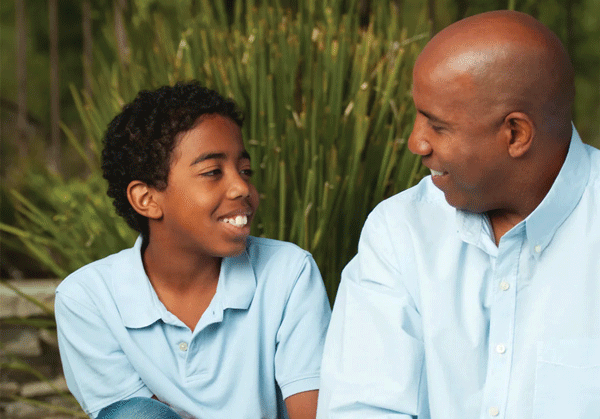
TALKING about sex can make one feel awkward, especially with your parents. A lot of teens expect parents to react negatively or make assumptions.
But you may be surprised at how happy parents can be when you come to them to talk, even if it’s a little uncomfortable.
They care about you, and often give great advice and information about sex and relationships, and can support you and the decisions you make.
You’re probably not the only one who feels awkward or nervous talking about sex at home — your parents might, also.
But in reality, lots of parents actually say they’re relieved when their teens start this conversation. Here are some tips to help you get started.
Is it a good idea to talk with my parents about sex?
Yes, most often communication between parents and teens is a good thing — and is good for you, too.
Research shows that ongoing dialogue makes parents and teens closer, and decreases your risk of teen pregnancy and sexually transmitted infections.
- Chamisa under fire over US$120K donation
- Mavhunga puts DeMbare into Chibuku quarterfinals
- Pension funds bet on Cabora Bassa oilfields
- Councils defy govt fire tender directive
Keep Reading
Most likely your parents already know a lot about staying sexually healthy (they’ve lived it, after all), and even if they can’t answer all of your questions, they can help you find reliable sources to get the information you need, or find a health care provider to talk to.
How can I start a conversation with my parents about sex?
Starting a conversation can be the hardest part, but once you start it gets easier and easier over time. Here are some tips to help you out:
- Try using a magazine article or television show to start talking about sex more generally, then you can work your way up to the stuff that’s more personal to you.
- If you feel more comfortable communicating through email, text, or instant messages, go for it. It doesn’t matter how you talk, just talk.
- Give your parents a heads-up that you want to talk. Just say something like, “Can we have a private talk tonight?”
That way you don’t catch them off guard or already stressed about something else.
- Break the ice with something like, “This feels weird for me to talk about, and it may be for you, too, but I want to ask about . . .”
- Think of questions you want to ask, and maybe even write them down first. You could ask them about what their parents taught them about sex, how to know when you’re in love, how to know when to have sex, and how to stay protected from pregnancy and sexually transmitted diseases.
Should I involve my parents when making decisions about sex?
Often parents want to feel needed and involved in their children’s lives. Make sure to tell your parents what role you want them to play in your decision making.
- You may want their advice about whether you should start or continue having sexual relationships.
- You may want them to give you suggestions about ways to protect yourself from infection and pregnancy.
- You may want them to go with you to get birth control or to get tested for sexually transmitted infections.
What if I really can’t talk with my parents about sex?
Unfortunately, some parents can’t get over their discomfort about sex. Worse, some threaten or punish their children for raising the topic.
If you feel that asking questions will put you in danger, don’t bring it up.
If you’re very concerned about your parents’ reaction, you might choose to put off this conversation until you feel you and your parents are more ready.
Or maybe your parents aren’t around. In these cases, you could turn to another trusted adult.
Here are some people you can talk to:
- Staff at your local planned parenthood health centre can talk with you and help you find the information and resources that you need.
- Trusted adults, such as teachers, relatives, clergy, and family friends may be willing to talk with you.
— www.plannedparenthood.org











